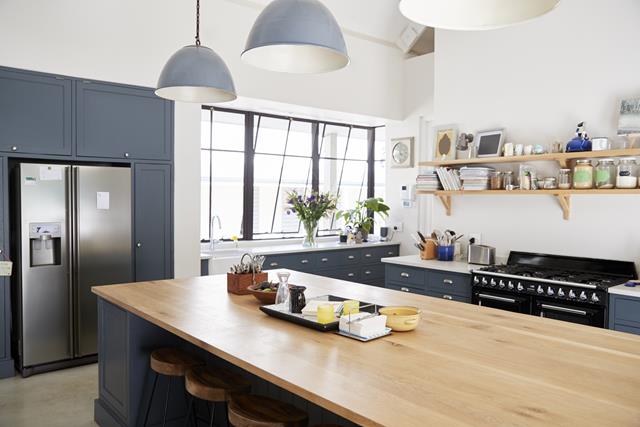Home decorators play a crucial role in transforming living spaces into aesthetically pleasing and functional environments. In this article, we will delve into the world of home decorating, specifically focusing on the hourly rates that professionals in this industry can expect to earn. If you’ve ever wondered “how much do home decorators make an hour,” then you’re in the right place.
The home decorating industry offers a wide array of opportunities for individuals with a passion for design and an eye for detail. From residential to commercial projects, home decorators have the chance to showcase their creativity and expertise in creating beautiful and comfortable spaces for their clients. Whether working independently or as part of a design firm, home decorators are instrumental in bringing their clients’ visions to life.
In the following sections, we will explore the education and training requirements for aspiring home decorators, as well as the factors that can influence their hourly rates. We will also take a closer look at the average hourly wage for home decorators, high-end projects and hourly rates, tips for increasing income, freelancing versus employment considerations, and potential career advancement opportunities within the field.
So if you’re considering entering or are already a part of the home decorating industry, keep reading to learn more about what determines a home decorator’s hourly earnings.
Education and Training for Home Decorators
Becoming a successful home decorator requires a combination of creativity, skill, and knowledge. Many decorators pursue formal education in interior design, art history, or other related fields to develop their expertise. A bachelor’s degree in interior design or a related field is often preferred by employers and clients. Additionally, there are many professional certification programs available for home decorators looking to enhance their skills and credibility.
In addition to formal education, practical experience is essential for home decorators. This can be gained through internships, apprenticeships, or entry-level positions at design firms or home decor stores. Many successful home decorators also develop their style and skills through self-study and experimentation.
It’s important for aspiring home decorators to stay updated on industry trends and techniques. Attending workshops, conferences, and trade shows can provide valuable networking opportunities and exposure to new ideas. Additionally, staying current with software programs used in the industry, such as CAD (computer-aided design) software, can make decorators more competitive in the job market.
According to the Bureau of Labor Statistics (BLS), the median hourly wage for interior designers – which includes home decorators – was $25.96 as of May 2020. However, this figure can vary widely depending on factors such as location, experience level, and type of employer. For example, self-employed home decorators may have higher earning potential than those working for a company or design firm.
| Education Level | Hourly Wage |
|---|---|
| Bachelor’s degree | $25.96 |
| Certification programs | Varies |
| Self-study/experience | Varies |
Factors That Affect Hourly Rates for Home Decorators
Several factors can influence how much home decorators make per hour. One significant factor is the decorator’s level of experience and expertise. Entry-level decorators may command lower hourly rates compared to those with several years of experience and a successful portfolio.
Another factor that affects hourly rates for home decorators is geographic location. Decorators working in major cities or affluent areas may be able to charge higher rates compared to those working in smaller towns or less prosperous areas. Additionally, the size and scope of the project can also impact hourly rates, with larger and more complex projects commanding higher fees.
The specific services offered by the home decorator can also affect their hourly rates. For example, a decorator who offers additional services such as custom furniture design or project management may command higher rates than those who only offer basic decorating services.
| Location | Average Hourly Wage |
|---|---|
| New York City | $25 – $40 |
| Los Angeles | $20 – $35 |
| Chicago | $18 – $30 |
| Rural Areas | $15 – $25 |
Average Hourly Wage for Home Decorators
The average hourly wage for home decorators can vary significantly depending on factors such as experience, location, and the specific niche within the industry. According to the Bureau of Labor Statistics, the median hourly wage for interior designers, which includes home decorators, was $26.45 in May 2020. However, it’s important to note that this figure represents a wide range of experience levels and specializations within the broader field of interior design.
When considering how much home decorators make an hour, it’s crucial to recognize that entry-level professionals may earn closer to the lower end of the spectrum, while seasoned experts with a strong portfolio and established clientele have the potential to command much higher rates. Below are some key factors that can influence hourly wages for home decorators:
Factors Affecting Hourly Rates for Home Decorators:
- Experience and Expertise: As with any profession, more experienced home decorators typically command higher hourly rates. Those with a proven track record and a strong portfolio may have an advantage in negotiating higher compensation.
- Geographic Location: The cost of living varies significantly from one region to another, impacting what clients are willing and able to pay for home decorating services. Home decorators working in major metropolitan areas or affluent neighborhoods may be able to charge higher hourly rates compared to their counterparts in smaller towns or less affluent regions.
- Specialization: Home decorators who have specialized skills or expertise in particular areas such as sustainable design, luxury interiors, or commercial spaces may be able to command premium hourly rates due to their unique value proposition and market demand.
It’s also worth noting that many home decorators supplement their income with additional sources such as teaching workshops, selling merchandise online, or writing books about interior design. Diversifying revenue streams can be an effective way for home decorators to boost their overall earnings beyond their hourly rates for client work.
High-End Home Decorating Projects and Hourly Rates
When it comes to high-end home decorating projects, home decorators have the potential to earn a significantly higher hourly rate compared to more standard projects. These high-end projects can include working on luxury homes, upscale condominiums, or prestigious commercial spaces. The demand for top-tier design expertise and attention to detail in these types of projects often justifies a higher price tag.
In the world of high-end home decorating, attention to detail is crucial. This level of detail often includes custom-made furniture and decor, unique and rare materials, and intricate design concepts that require a high level of skill and creativity. Home decorators who excel in this field typically have a strong portfolio that showcases their ability to transform spaces into luxurious, one-of-a-kind environments.
When taking on high-end projects, home decorators may also need to collaborate with other professionals such as architects, builders, and artisans. This level of coordination and project management adds value to their services and may result in higher hourly rates to compensate for the additional time and effort required.
In addition to artistic talent and technical skills, establishing a strong network within the industry is essential for securing high-end clients. Building a reputation for delivering outstanding results in exclusive settings can lead to more opportunities for lucrative projects with premium hourly rates.
- Attention to detail is crucial in high-end home decorating
- Collaboration with other professionals may be necessary
- Establishing a strong professional network is essential for securing high-end clients
Tips for Increasing Hourly Income as a Home Decorator
As a home decorator, finding ways to increase your hourly income can be essential for growing your career and achieving financial stability. Whether you are a freelance decorator or employed by a design firm, there are several strategies you can implement to boost your earnings.
Expand Your Skill Set
One way to increase your hourly income as a home decorator is by expanding your skill set. Consider taking additional courses or certifications in areas such as interior design, color theory, or sustainable design. By broadening your knowledge and expertise, you can position yourself as a more valuable and versatile decorator, allowing you to command higher rates for your services.
Build a Strong Portfolio
A strong portfolio showcasing your best work can significantly impact how much you can earn as a home decorator. Invest time and effort into creating an impressive portfolio that highlights the range and quality of your projects. Additionally, consider including client testimonials and before-and-after photos to demonstrate the transformational impact of your work. A compelling portfolio can help you attract higher-paying clients and justify charging higher hourly rates.
Cultivate Strong Client Relationships
Building strong relationships with potential clients is key to increasing your hourly income as a home decorator. Communicate effectively, listen attentively to their needs, and provide exceptional service to ensure client satisfaction. Happy clients are more likely to refer others to you and may also be willing to pay higher rates for future projects based on their positive experiences with you.
By implementing these tips, home decorators can enhance their earning potential while establishing themselves as reputable professionals in the industry. Understanding how much do home decorators make an hour is important but applying these strategies can help decorators command higher rates for their creative expertise and design acumen.
Freelancing vs Employment
When it comes to working as a home decorator, there are different options for employment that can impact your hourly rates. Whether you choose to freelance or work for a company can have a significant impact on how much you make per hour.
Freelancing as a Home Decorator
Freelancing as a home decorator can provide the opportunity for more flexibility and potentially higher hourly rates. When you work for yourself, you have the power to set your own prices and take on as many clients as you can handle. However, freelancing also comes with challenges such as finding clients, managing administrative tasks, and being responsible for your own taxes and benefits.
Employment as a Home Decorator
Choosing to work for a company or design firm may provide more stability in terms of income and benefits. Many decorators appreciate the structure and support that come with being employed by an established business. However, this option may come with lower hourly rates compared to freelancing due to salary agreements set by the employer.
In deciding between freelancing and employment, it’s important to consider your career goals, financial needs, and personal preferences. Some decorators find success in blending both options by working for a company while taking on their own freelance projects on the side. Ultimately, the choice between freelancing or employment will depend on how much do home decorators make an hour and what aligns best with your professional aspirations.
Potential for Career Advancement and Income Growth for Home Decorators
In conclusion, the home decorating industry offers ample opportunities for career advancement and income growth for home decorators. With the right education, training, and experience, decorators can see an increase in their hourly rates as they establish themselves in the industry. Factors such as location, specialization, and level of expertise also play a crucial role in determining how much home decorators make per hour.
As mentioned earlier, high-end home decorating projects can significantly impact hourly rates for home decorators. By catering to clients with larger budgets and more intricate design needs, decorators can command higher fees for their services. Additionally, freelancing can offer flexibility and potentially higher hourly rates compared to traditional employment. However, freelancers must also consider the additional responsibilities of managing their own business and finding clients.
For those looking to increase their hourly income as a home decorator, pursuing further education or certification in specialized areas such as sustainable design or luxury interior design can open up doors to higher-paying opportunities. Building a strong portfolio and client base through networking and marketing efforts can also lead to increased demand and ultimately higher hourly rates. With dedication and strategic career moves, home decorators have the potential to elevate their earning potential within this thriving industry.
Frequently Asked Questions
Where Do Interior Decorators Make the Most Money?
Interior decorators tend to make the most money in urban areas with a high cost of living, such as New York City, Los Angeles, and San Francisco. These locations usually have a higher demand for their services and clients willing to pay top dollar for quality interior design.
What Do Decorators Charge?
Decorators typically charge clients either an hourly rate, a flat fee for the entire project, or a percentage of the total project cost. The exact amount they charge can vary depending on factors such as their level of experience, the scope of the project, and the specific services being provided.
It’s important for clients to discuss and agree upon pricing before work begins.
What Should I Expect From a Home Decorator?
When hiring a home decorator, you should expect them to have a keen eye for design and be able to bring your vision to life. They should be skilled at space planning, color coordination, fabric selection, and overall aesthetic appeal.
A good decorator will also listen carefully to your needs and preferences while offering creative solutions and expert guidance throughout the design process.

Hello, lovely readers! I’m Sheila Collins, and I’m delighted to be your trusted guide on this exciting journey of home improvement, design, and lifestyle. As the founder and editor-in-chief of Home Guide Blog, I’m passionate about all things related to homes, and I’m here to share my knowledge, experiences, and insights with you.





